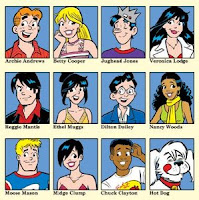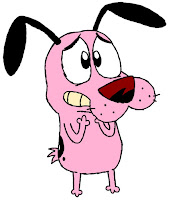So... It's
Maus week 2. I feel like there may be a general sense of dismay due to the fact that everyone has to come up with ANOTHER Holocaust-based blog post. But contrary to what I am pretending the popular belief is, I am just teeming with opinion (hard to believe, I know).
 |
| childhood comics = gold |
So the thing is that earlier this week we talked about why comics were the appropriate medium for Spiegelman and all that jazz. (...All that jazz? Did I really just say that? What's wrong with me? The sleep deprivation must be getting to me...) My very good friend, Shreya Subramanian, even said that it was to help readers distance themselves from the horror of the Holocaust. She reasoned that comics are associated with the innocence and happiness of childhood. While I agree with her reasoning, it got me thinking (rather, rethinking). What if Art Spiegelman didn't mean to distance readers from the horror, but actually immerse them in it? The entire book is kind of a detailing his immense struggle to understand the concept of the Holocaust, so maybe he is trying to put the readers in that same situation.
 |
| Archie Andrews and his friends |
For me, comics are associated with childhood and happiness and innocence all of the way. I grew up
with 2 older cousins always by my side, both extremely infatuated with the adventures of Archie Andrews and his friends. Jughead, Hotdog, Moose, Midge, Veronica, Betty, Reggie, and the rest of the gang. My cousins had a huge bookcase just full of Archie comics waiting for my little fingers to grab them and dive in. In fact, Archies were such a huge part of my childhood that when I'm feeling too stressed to function, I pick up an Archies and transport myself to Riverdale. I've always considered books to be something magical, waiting to take me away to some place new.
So that's what my mind went to. The fact that books took it somewhere else. The entire time I was reading
Maus I was trying to picture myself walking the streets of Poland with Vladek. But I just couldn't do it. Because it was a comic, supposed to be childish and pleasant. It was so hard to imagine myself younger (when I used to read Archies so often I talked about them like I lived them) reading this secondhand account of a horrible history. Then my mind got going... and that is when this idea took place in my head.
What if the reason that Art Spiegelman decided to write
Maus as a comic was to remind readers of childhood? It would remind them fully, constantly, perpetually, that the children of the Holocaust had no childhood. The innocence that the general public associated with comics was gone. The children of the Holocaust had their innocence stolen.
Blackened even... like the ink on the pages. Throughout the story, the mice are shown as shaded in when they connect to their horrible and scarring past. The borders that the readers touch, the only part of the book that they feel (literally) is that white innocence. The entirety of the piece is to emphasize that we will never connect to the same amount of pain that the victims of the Holocaust did. We, the distanced audience, are reading this story on a medium that takes us back to childhood, while those children in the story never even had one.
It's 2 am and my brain is working quickly so try to keep up.
In Tae Kwon Do, we learn the symbols of each belt color. White symbolizes purity and innocence, which is what Art and the audience really embody. Unable to go back to the past, they live an innocent and sheltered life. Black, the color of the ink and the history, symbolizes maturity. The only thing the readers have is their innocence, and the one thing the mice in the story have is that maturity that was forced upon them.
 |
| the Criminal Minds cast |
It's quite like the kind of feeling I get when I watch Criminal Minds and there is a kid involved. It's the best TV show. If you don't watch it I would highly recommend it, unless you have a problem with violence. A lot of the episodes in one way or another incorporate children. I think most people end the show feeling happy.
Yay! They caught the bad guy! He's going to jail! They did it! They made the world a better place! But not me. I'm always stuck at the end. What happened to those children? Did the trauma of their abduction impact them later on in life? Did the knowledge that their father or mother was a murderer push them to act in violent ways too? Did they develop emotional problems? Psychological ones? Could they sleep at night? Were they always afraid of repeating their trauma? Just like Art Spiegelman's mice, the children in the show lose their innocence at a young age. They no longer regard the world as a perpetually happy place.
These questions and many more run through my mind almost every single time there is a child on the TV show. Where is their innocence? What about the Jewish kids under Hitler? Where is
their innocence? Even little Richieu was victim to this horror. "He got killed... he was only five or six" (Spiegelman 15). Not only did the Holocaust steal his innocence, happiness, and childhood-it stole his life too.
Maybe this makes no sense, maybe this makes a lot of sense, but when I look at the comic, all I can think about is childhood. And all I can think about is how the children in the story and in real life never had one.
Lyrics of the week:
"If you're still bleeding, you're the lucky ones. Cause most of our feelings, they are dead, and they are gone... well I've lost it all, I'm just a silhouette. I'm a lifeless face you'll soon forget." from
Youth by Daughter.








































